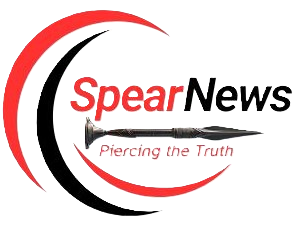Nigeria Customs Service (NCS)
In a landmark policy shift designed to strengthen Nigeria’s healthcare system, the Nigeria Customs Service (NCS) has implemented a presidential executive order exempting critical pharmaceutical raw materials from import duties and Value Added Tax (VAT) for two years.
The initiative, approved by President Bola Ahmed Tinubu and announced by the minister of finance and coordinating minister of the economy, Olawale Edun, seeks to bolster local manufacturing, lower the cost of medical products, and attract investment into Nigeria’s healthcare industry.
The exemptions apply to essential raw materials such as Active Pharmaceutical Ingredients (APIs), excipients, reagents, Long-Lasting Insecticidal Nets (LLINs), Rapid Diagnostic Kits, and packaging materials. These items are crucial for the production of medicines and other healthcare products, and the policy is expected to significantly reduce the financial burden on local manufacturers while ensuring the availability of life-saving treatments for Nigerians.
To qualify for these incentives, manufacturers must be recognised by the Federal Ministry of Health and Social Welfare and possess a valid Tax Identification Number (TIN). This restriction ensures that only legitimate pharmaceutical companies benefit from the tax relief, directly supporting the expansion of Nigeria’s local production capacity.
The NCS has also pledged to maintain strict transparency and accountability in implementing the policy. As part of its oversight, the agency will publish quarterly reports detailing all importations under the exemption, including data on importers, quantities, and the value of imported goods. This will help ensure that the policy’s objectives—enhancing domestic production and reducing reliance on foreign imports—are met effectively.
The move aligns with President Tinubu’s broader economic agenda of stimulating local industries and reducing Nigeria’s dependence on imported goods. By easing the cost of raw materials, the government aims to create an environment where pharmaceutical companies can expand their operations, create jobs, and improve access to affordable medications.
Assistant Comptroller of Customs and national public relations officer Abdullahi Maiwada, in a press statement released on Wednesday, said, “The Nigeria Customs Service remains committed to supporting government policies that facilitate trade, enhance border security, and drive national development. This initiative will not only strengthen Nigeria’s healthcare sector but also encourage long-term investments in local pharmaceutical manufacturing.”
Industry stakeholders have welcomed the policy, as they have long called for government intervention to address high production costs in the pharmaceutical sector. Many believe that eliminating import duties and VAT on key raw materials will provide much-needed relief to manufacturers, lower the prices of essential medicines, and make Nigeria’s healthcare industry more competitive globally.
Economic analysts also see the exemption as a step towards self-sufficiency in medicine production, reducing Nigeria’s vulnerability to global supply chain disruptions. The COVID-19 pandemic exposed the risks of overreliance on foreign pharmaceutical imports, and this policy is expected to mitigate such risks in the future.
The success of this initiative will depend on close cooperation between the government, pharmaceutical manufacturers, and regulatory agencies, they said.
The NCS has urged all stakeholders, including importers and industry players, to work together to ensure the smooth implementation of the policy.
SPEARNEWS reports that with Nigeria striving to become a hub for pharmaceutical production in Africa, this policy marks a significant step toward achieving that goal. If effectively executed, it could lay the foundation for a more resilient, affordable, and accessible healthcare system for millions of Nigerians.







































Discussion about this post